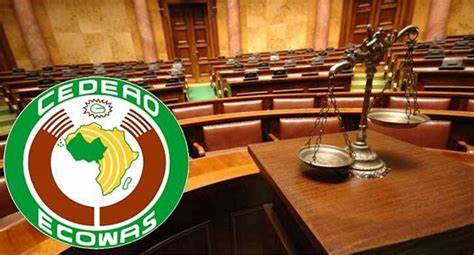The ECOWAS Community Court of Justice has ruled that Kano State’s blasphemy laws are inconsistent with Nigeria’s international human rights obligations, particularly the right to freedom of expression as guaranteed under regional and global treaties.
In a landmark judgment delivered on Wednesday, the court determined that sections of both the Kano State Penal Code and the Kano State Sharia Penal Code fall short of international legal standards. The ruling followed a suit filed by Expression Now Human Rights Initiative (ENHRI), a Nigerian-based NGO, against the Federal Republic of Nigeria.
A three-member judicial panel comprising Presiding Judge Ricardo Gonçalves, and Judges Sengu Koroma and Dupe Atoki delivered the decision, which could have far-reaching implications for freedom of expression laws across Nigeria.
The court held that Section 210 of the Kano Penal Code was “vague” and lacked clarity on what constitutes an insult to religion, making it open to arbitrary interpretation. It further ruled that Section 382(b) of the Sharia Penal Code, which prescribes the death penalty for insulting the Prophet Muhammad, was “excessive, disproportionate, and incompatible with democratic principles.”
“These provisions violate the principles of legality, necessity, and proportionality,” the court stated, citing Nigeria’s commitments under the African Charter on Human and Peoples’ Rights and the International Covenant on Civil and Political Rights (ICCPR).
The court emphasized that while states have a legitimate interest in maintaining public order and respecting religious sentiments, laws regulating such issues must not infringe on fundamental rights.
The judgment directed the Nigerian government to amend or repeal the identified blasphemy provisions and similar laws to align with Article 9(2) of the African Charter, which upholds the right to freedom of expression.
The court also reviewed claims that the Nigerian state had failed to prevent mob violence linked to blasphemy accusations. However, it found the evidence presented—primarily media reports—insufficient to establish a systemic failure.
The ruling comes in the aftermath of the highly publicized case of Mubarak Bala, a Nigerian atheist arrested in 2020 for social media posts critical of Islam. Bala was sentenced to 24 years in prison in 2022 after pleading guilty to multiple counts of blasphemy. His imprisonment drew global criticism, sparking debates on freedom of belief and expression in Nigeria.
Following sustained advocacy, Bala’s sentence was later reduced, and he regained freedom in January 2025, after serving four years behind bars.
Human rights groups have welcomed the ECOWAS court’s decision, calling it a significant step toward protecting civil liberties in Nigeria.
“This ruling is a victory for free speech and the rule of law,” said a spokesperson for ENHRI. “We hope it prompts Nigerian lawmakers to urgently revisit and reform oppressive laws that threaten fundamental rights.”
As of press time, the Nigerian government and Kano State authorities had not issued an official response to the court’s decision.

















